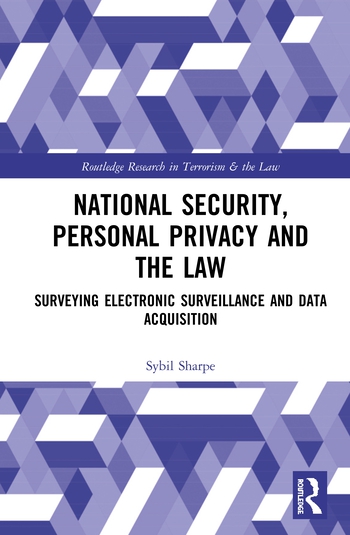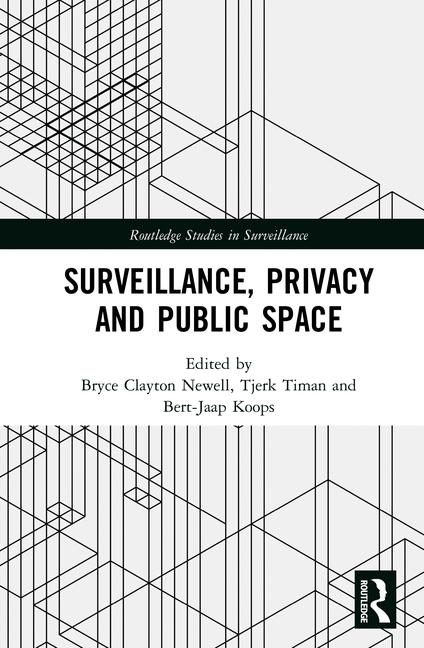GOVERNMENT SECURITY
Navigating Recent Changes to GSA Schedules
Thanks to a variety of circumstances, opportunities abound in the government sector. To take advantage, though, you’ll first have to familiarize yourself with GSA Schedules.

There are many opportunities in the government sector for security professionals.
USCHOOLS/E+ VIA GETTY IMAGES

GSA issued a COVID-19 waiver to ease supply chain troubles during the pandemic.
GILNATURE/ISTOCK / GETTY IMAGES PLUS VIA GETTY IMAGES

Section 889 banned the use of some of the most popular video surveillance products in government buildings.
NUTTIWUT RODBANGPONG/ISTOCK / GETTY IMAGES PLUS VIA GETTY IMAGES



GSA Schedules are not easy to navigate. But, with business being so good in the government sector, it’s well worth it, according to those taking advantage already.
A GSA Schedule, also known as a Multiple Award Schedule (MAS) or Federal Supply Schedule, is a long-term government-wide contract with a company, providing federal government buyers access to more than 11 million commercial products and services at discount prices. State and local governments are also authorized to use the contract, but only for security and IT products and services.
Lynn de Seve, founder and president of GSA Schedules Inc., Annapolis, Md., has more than 35 years of experience helping security professionals navigate these Schedules — a role that has become even more crucial recently, as the GSA Schedules went through some big changes.
“GSA decided they were going to reinvent themselves, and a lot of times when they do this, the changes to processes and procedures don’t make it easier at first,” de Seve says. “Although everything is not perfect and it’s still a lot of regulations and paperwork, GSA has steadily worked to make their program better for their customers.”
Best Practices for Security Integrators
If you are not already involved in the government sector, now might be a good time to start.
Not only is navigating GSA Schedules becoming at least slightly easier, but opportunities abound as federal security requirements become more comprehensive, and non-NDAA-compliant equipment must be replaced. Here, security professionals share some advice and best practices for security systems integrators.
“Using GSA Schedules can be a competitive advantage for those who spend the time necessary to fully understand how to leverage this contracting mechanism. Accordingly, you have to invest in the right types of personnel who may have previous experience in the government procurement space. It’s also important to work with partners who can help you navigate the government space and add value by assisting integrators who want to list products on these Schedules. In fact, there is considerable effort required by all parties in order to be successful.” — John Merlino, Axis Communications
“One key to success includes having a great working relationship with our GSA contracting officer. For some companies, like a manufacturer, change management may impact its schedule occasionally or annually. However, as an integrator, we continually strive to provide the newest, more technologically advanced solutions to meet our customers’ needs. This means that we may need to modify our offerings with regard to adding or deleting products and service solutions and pricing per the manufacturer’s changes on an atypical schedule. Having a contracting officer that is proactive and shares the customer’s desire to access the solutions in a timely matter is paramount to delivering total solutions on schedule.” — Xanne Luera, Securityhunter
“I would absolutely recommend you hire a consultant, and go to the events that GSA puts on and take a lot of notes. You’re not going to just wing it and be successful — you need to go to these events, spend some time and get educated.” — Justin Himelberger, Genetec
“One of the best ways security professionals can prepare for these changes is to review the plan for the schedule consolidation and related changes that support this effort. They should be mindful of the updated terms and conditions and walk through the process to ensure their systems are being updated to meet the required changes.” — Jason M. Ouellette, Johnson Controls
“The Security Industry Association is a great resource for keeping current with the changing regulations. The Government Affairs Committee, including the Government Procurement Policy Working Group, is dedicated to keeping the industry informed and addressing the issues that impact the industry both from a federal and state perspective. GSA offers virtual training sessions for the Security and Protection category to both educate contractors and keep them informed. The GSA Vendor Support Center is a great resource of information and education. All contractors should be utilizing the tools and resources offered at www.sam.gov. This website is now hosting business opportunities, Bureau of Labor information, Schedule sales query info and agency sales data from the Federal Procurement Data System.” — Lynn de Seve, GSA Schedules Inc.
Consolidation
One issue security professionals frequently encountered when navigating GSA Schedules was determining just which Schedule their solutions should go on.
“A historic change was implemented in October 2019 when the 24 separate GSA contracts became one consolidated program known as MAS,” de Seve explains. “GSA organized their offerings into 12 large categories. For the security industry the applicable category is Security and Protection. But in mapping over the special item numbers for security defining the products and services offered under the GSA program, there is overlap into other large categories such as Facilities or IT.”
GSA also revised the special item numbers (SINs) to more closely resemble North American Classification System (NAICS) codes, which de Seve says could help to streamline procurement challenges.
Jason M. Ouellette, senior director of technology and business development, Johnson Controls, Milwaukee, agrees that the changes to the procurement process have helped simplify the process.
“GSA has improved categorization, and the ability to avoid duplicate product listings that can contribute to confusion on GSA scheduled items,” Ouellette says. “This will certainly make the procurement process clearer to understand and execute through the improved categorization and schedule consolidations.”
John Merlino, segment development manager, critical government, Axis Communications, Chelmsford, Mass., is impressed with the progress GSA has made with this change.
“GSA is moving in the right direction,” Merlino says. “There has been a very noticeable trend to streamline the administrative process in many regards, and this is a welcome change.”
It’s no surprise that the consolidation has received such a warm reception — the lines between security and IT have been blurring for some time, so the consolidation of the categories was necessary.
“The security industry has indeed evolved over the years and as such we have seen a convergence of technology that crosses over categorizations related to the security and IT solutions,” says Xanne Luera, contracts manager at Securityhunter, a security systems integrator based out of Baltimore. “Whereas security products typically fell under Schedule 84, Schedule 70 also included SINs specific to security products and service solutions, IP-based cameras and the IT infrastructure connecting the technology. The overall impact is a positive one for contractors that were limited to one or two category-specific schedules and SINs.”
Luera cautions, though, that along with all of the benefits, there might be some downsides to the consolidation.
“The consolidation is also a double-edged sword for some, as now the competition will increase whereas previously competition was limited to only those contractors with the Schedule and SINs,” Luera says. “In turn, the government buyers now have access to a greater source of suppliers. Competition is good — it’s the American way and there is definitely enough work within the federal, state and local government marketplace for all security contractors to thrive.”
Verified Product Portal
Another recent change to the GSA contract process was the addition of the Verified Products Portal (VPP), which provides authoritative product content that standardizes catalog-data for commercial off-the-shelf (COTS) products procured using GSA Schedules. This should help to clarify who is authorized to resell products for those companies that choose to participate, de Seve says.
“Before, if you were an integrator and wanted to put products on a GSA contract, the approved procedure was to get a Letter of Supply from the manufacturer or designated distributor,” she explains. “Unfortunately many unauthorized resellers have added products to their GSA Schedules without permission from the actual suppliers.”
Merlino says the VPP is the recent change with the greatest impact on manufacturers.
“The VPP will provide end users with better clarity on what they’re purchasing, and it will further enhance understanding about what’s recognized as COTS,” Merlino says. “I believe the overall objective of the refresh is to make the program more user friendly and, for any government entity, an increased ease of use in procurement is an important step forward.”
Plus, the portal allows manufacturers to work with the GSA to manage and control what and who can sell their products.
VIVOTEK Talks NDAA History, Tips
With moments of civil unrest on the rise, protecting government buildings — which are usually open to the public — is now more important than ever.
For those looking to break into the government space, or security integrators looking to provide extra reassurance to their customers in their product offerings, knowing about the National Defense Authorization Act (NDAA) is important. SDM Associate Editor Amanda Reed chatted with Meng Chhun, VIVOTEK USA marketing manager, to discuss the basics of the NDAA.
SDM: What is the National Defense Authorization Act?
CHUNN: The NDAA is a bill that congress passes annually, and in that bill, it sets guidelines and provides guidance on how military funding can be spent by the United States defense agencies. There’s a section in the bill, titled Section 889, that’s important to the security manufacturers who want to land government projects. VIVOTEK was one of the security manufacturers who carried NDAA-compliant products from the start as most of our products are made in Taiwan and not in China from banned vendors where it is prohibited in the NDAA bill.
SDM: How does the NDAA pertain to physical security companies?
CHHUN: Security cameras are manufactured from all over the globe and telecommunication equipment and video surveillance services or equipment are outsourced from many vendors. Under Section 889 of NDAA, specific vendors that provide substantial or essential components, such as SoC, of any system, are named and banned, and these vendors are Huawei, ZTE, Hytera, Hikvision and Dahua, and their subsidiaries. Security cameras that use components from these five banned vendors and their subsidiaries will not be given project considerations or opportunities inside the government sectors.
SDM: What are some benefits to providing NDAA-compliant solutions?
CHUNN: Having NDAA-compliant solutions will help security manufacturers get through the door and open opportunities to win federal government contracts and projects, which otherwise would not be possible with non-compliant solutions.
SDM: What does the future of NDAA compliance look like?
CHUNN: Manufacturers will steer away from banned vendors in order to have solutions that are NDAA-compliant. NDAA-compliant solutions will not only be targeted by federal government agencies, but will also be sought after in the private commercial sector. — By Amanda Reed, SDM Associate Editor
COVID-19 Waiver
GSA also issued a COVID-19 waiver in order to ease some of the pains felt by the supply chain due to the pandemic. With this waiver, many of the rules and restrictions companies with GSA contracts must obey are relaxed.
“The COVID-19 waiver authorizes MAS contracting officers to award MAS contracts to new companies, and to modify existing MAS contracts to add service SINs that directly support the country’s response to the COVID-19 pandemic,” Luera says. “The waiver provides an opportunity for contractors to propose products, services and solutions that directly support our country’s response to the COVID-19 pandemic.”
Companies seeking to use this streamlined solicitation approach must submit a statement and an explanation which reflects that the offered products, services and solutions directly support COVID-19 efforts, Luera adds.
“The new COVID-19 waiver is necessary as the world deals with the ongoing supply chain challenges and COVID-19 new product innovations,” Ouellette says. “The waiver is critical for the ability to move products that will be vital to keeping business and government running.”
Merlino is hoping the waiver leads to some permanent changes.
“I believe the purpose of the COVID-19 waiver is to encourage expediency and responsiveness for all parties in light of the pandemic,” he says. “If the waiver makes any part of the procurement process easier for everyone, then that is likely a good thing. I am hopeful that some best practices will be realized and may be adopted post-COVID-19 if they turn out to be successful.”
Most seem happy that GSA — an organization that isn’t exactly known for its speed — was able to provide a waiver addressing such a current issue.
“It has been helpful for GSA to allow some consideration for the slowdown of certain sales due to the impact of COVID-19, and not to cancel contracts for not meeting the minimum sales requirement of $25,000 per year,” de Seve says. “And the streamlining of some of the requirements will help to move approvals along more expeditiously.”
NDAA Section 889
The U.S. government caused a stir in 2020 when it announced an amendment to the Federal Acquisition Regulation (FAR) to implement section 889(a)(1)(B) of the John S. McCain National Defense Authorization Act (NDAA). This banned the government’s use of telecommunications equipment from vendors who sell products containing spyware.
Security giants like Hikvision and Dahua were included on this list of banned vendors, though both have since released statements denying accusations that their products are anything but reliable.
De Seve says this regulation had bipartisan support. However, it also complicates things for GSA contract holders, as they aren’t supposed to sell products from any of the banned companies commercially even.
“Honestly, we had a lot of questions [regarding the amendment] that didn’t get answered [by the government],” de Seve says. “SIA along with its members responded to the published notification asking for clarification, but certain issues are not completely clear.
“It’s not just the concern of being spied on — it’s a matter of ethics. They’re not going to change it. They did allow other non-banned Chinese products to be included temporarily on the GSA contract when COVID-19 hit because we desperately needed that PPE equipment and we didn’t have it here; we had to get it from China. They’ve removed these items recently.”
This banning of some of the most used video surveillance equipment has created a large opportunity for security professionals, says Justin Himelberger, business development manager, federal government, Genetec, Montreal.
“There’s a lot of product out there that’s not NDAA-compliant, and now needs to be ripped out,” he says. “So on top of the opportunity that existed already, now there’s a lot of stuff out there that needs to be replaced.”
Security integrators must be fully aware of which products are now banned, though.
“[Integrators] should be aware of NDAA status for any new GSA target listings on the schedule to save time and eliminate any potential issues with solutions not meeting requirements,” Ouellette warns.
Looking for a reprint of this article?
From high-res PDFs to custom plaques, order your copy today!












